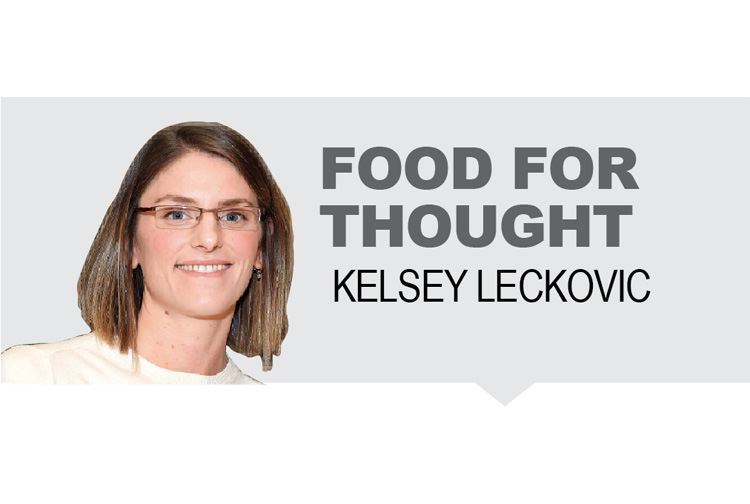Given that we're living in a diet-focused, weight-focused culture, where foods are assigned moral rankings and countless companies and individuals peddle nutrition misinformation in an effort to make a quick buck, it's refreshing to see the concept of intuitive eating pushing through all that garbage and gaining traction as a non-diet approach.
Although there seems to be more mention of intuitive eating recently, the term was actually created in 1995 by two California-based dietitians, Evelyn Tribole and Elyse Resch.
Tribole and Resch define intuitive eating as a "self-care eating framework, which integrates instinct, emotion, and rational thought." Intuitive eating is a "weight-inclusive, evidence-based model with a validated assessment scale."
In short, intuitive eating is not a diet, but a practice, which includes ten principles to help you listen to your internal body cues. Years of dieting and telling yourself what you can and cannot eat overrides these cues. When eating intuitively you don't count calories or carbs you don't track what you eat and you definitely don't have "cheat days."
Intuitive eating is a practice that seems to be gaining in popularity as a pushback from diet culture and weight loss fads. Tribole and Resch describe the pursuit of weight loss as a "failed paradigm, which creates health problems including weight stigma, weight cycling, and eating disorders."
With a never-ending supply of fad diets and nutrition misinformation confusing the average consumer, leading to disorder eating behaviours, the rise of intuitive eating seems to be needed now more than ever before.
The 10 principles of intuitive eating are:
1. Reject the diet mentality - the first step towards intuitive eating is accepting that fad diets are not supporting your health. "Throw out the diet books" and reject the idea that "a new and better diet might be lurking around the corner" as Tribole and Resch put it.
2. Honour your hunger - eating intuitively is about rebuilding trust in your body's cues. Feed your body when you feel hungry. Listening and responding to your hunger cues will allow you to be more in tune to those internal signals in the future.
3. Make peace with food - food is not the enemy. Give yourself permission to eat. Telling yourself that a food is "bad" creates intense feelings of deprivation that can become overpowering cravings, leading to an uncontrollable binge.
4. Challenge the food police - a person is not "good" for eating a minimal number of calories, or "bad" for eating a piece of birthday cake. Rejecting these thoughts is an important step to eating intuitively and listening to your body.
5. Respect your fullness - it's just as important to identify feelings of fullness, or a lack of hunger, as it is to identify feelings of hunger. When eating a meal or snack, listen for your body's signals telling you you're no longer hungry.
6. Discover the satisfaction factor - engage your senses while eating; slow down and appreciate the way the food looks, take in the smell and eat in an environment that makes you feel comfortable, with people who are good company. Creating this experience allows you to eat what your body needs.
7. Honour your feelings without using food - "eating your feelings" ultimately leads to feeling worse when the discomfort created by overeating is added on top of the emotions that still need to be dealt with.
8. Respect your body - accepting your body is an important step in rejecting diet mentality, and feeling better about who you are. It's just as unrealistic to have expectations about body weight as it is to have expectations about height or shoe size.
9. Exercise and feel the difference - when exercising, shift your focus from "calories burned" to how it feels to move your body. Does exercise give you energy? Improve your mood or confidence level? Does it make you feel strong?
10. Honour your health - make delicious food choices that support your health. As Tribole and Resch put it "you will not suddenly get a nutrient deficiency or gain weight from one snack, one meal, or one day of eating. It's what you eat consistently over time that matters; progress not perfection is what counts."
- Kelsey Leckovic is a registered dietitian with Northern Health working in chronic disease management.



